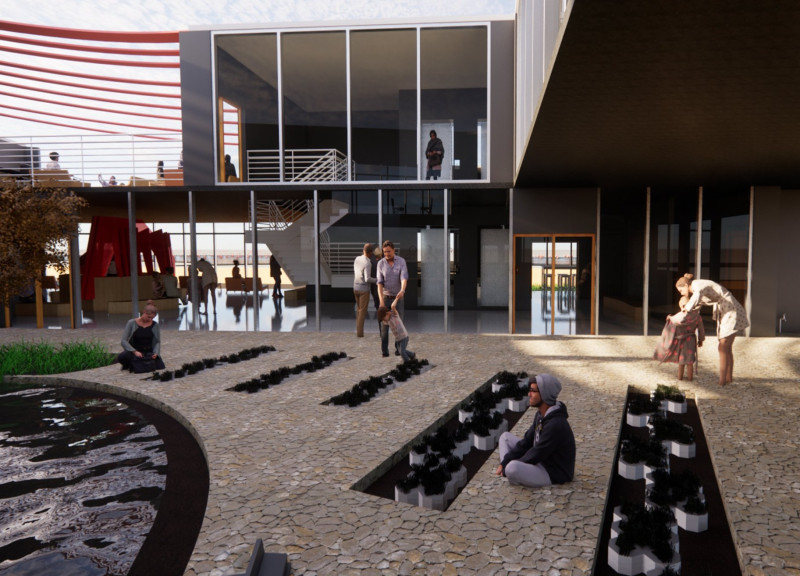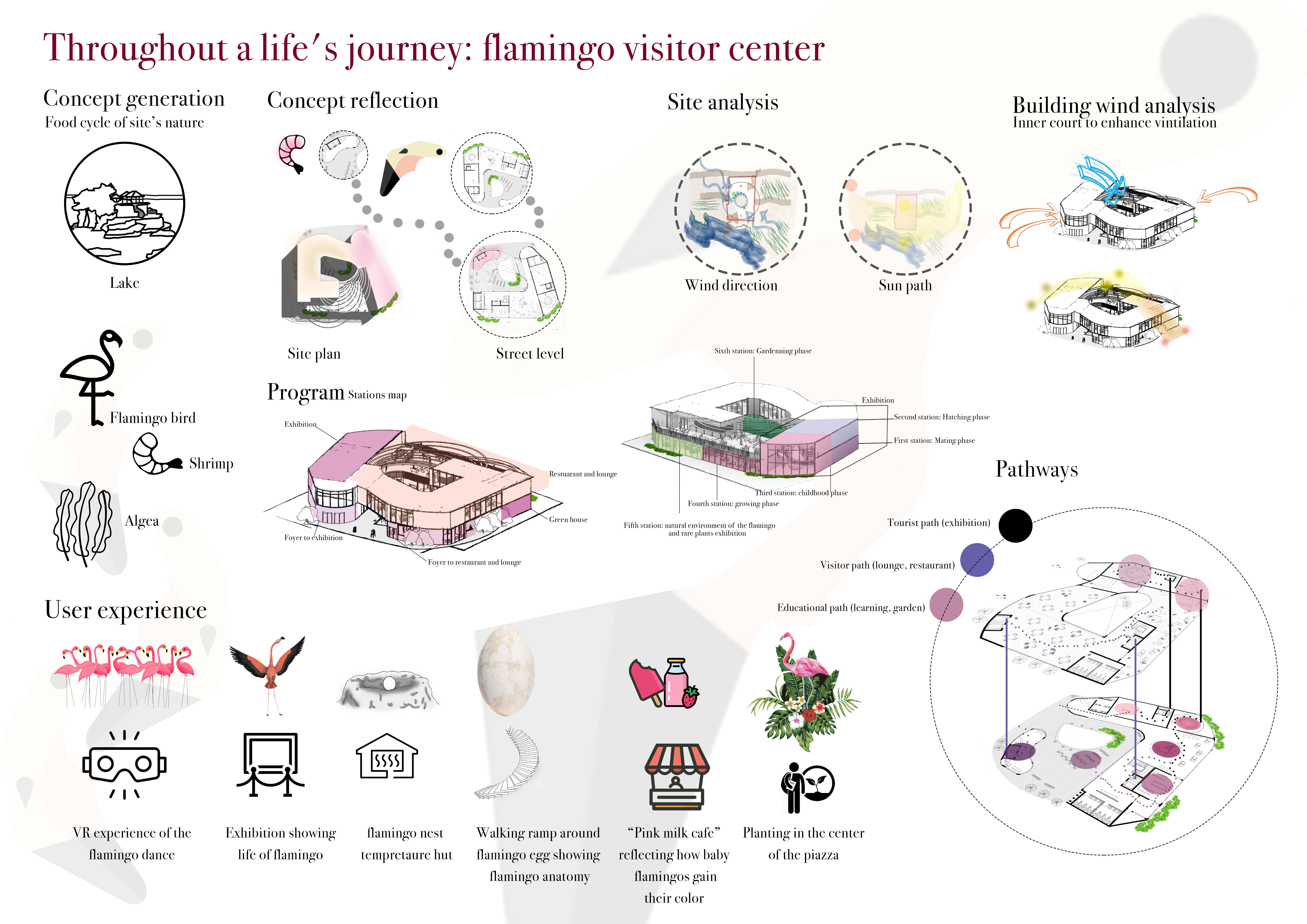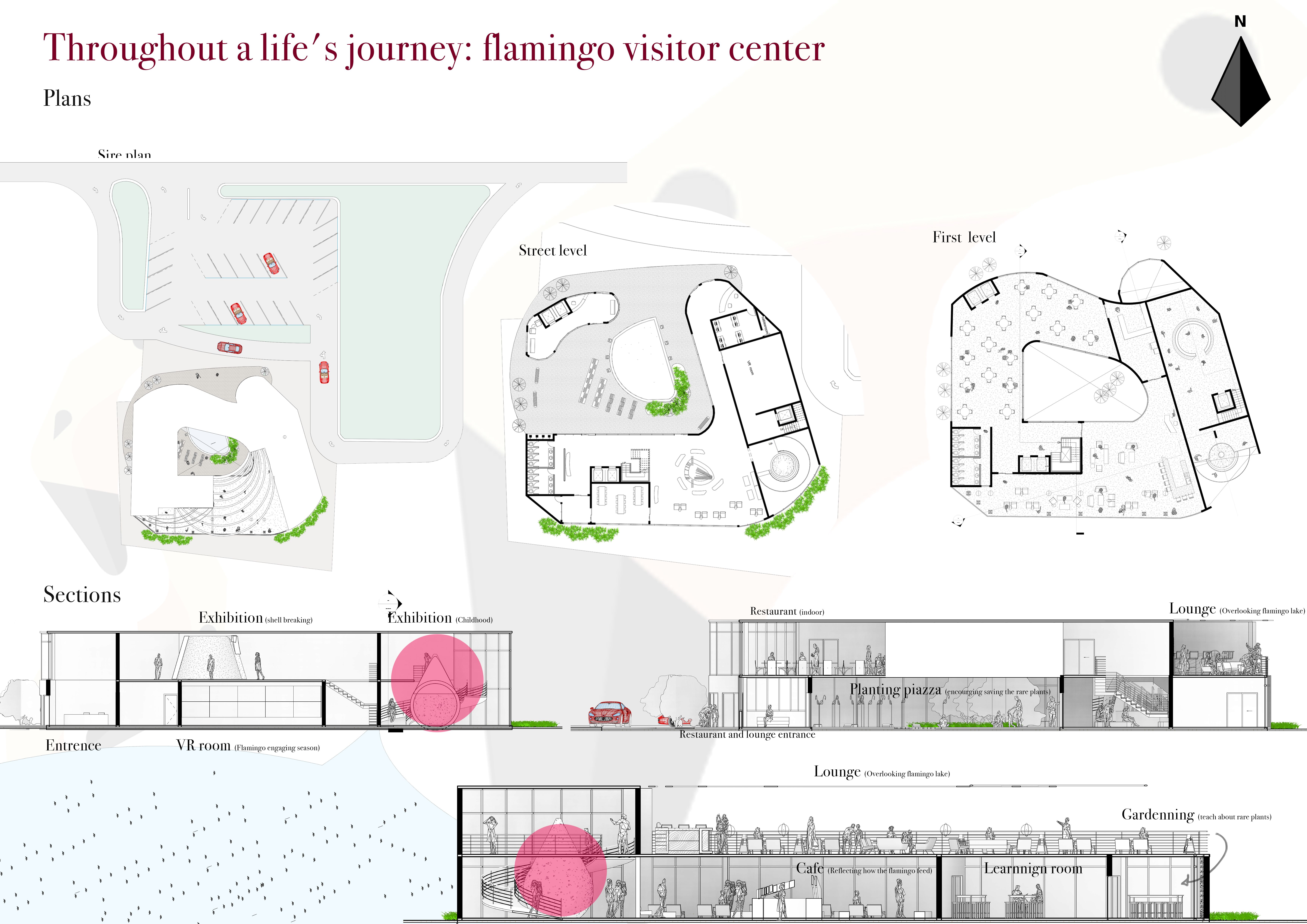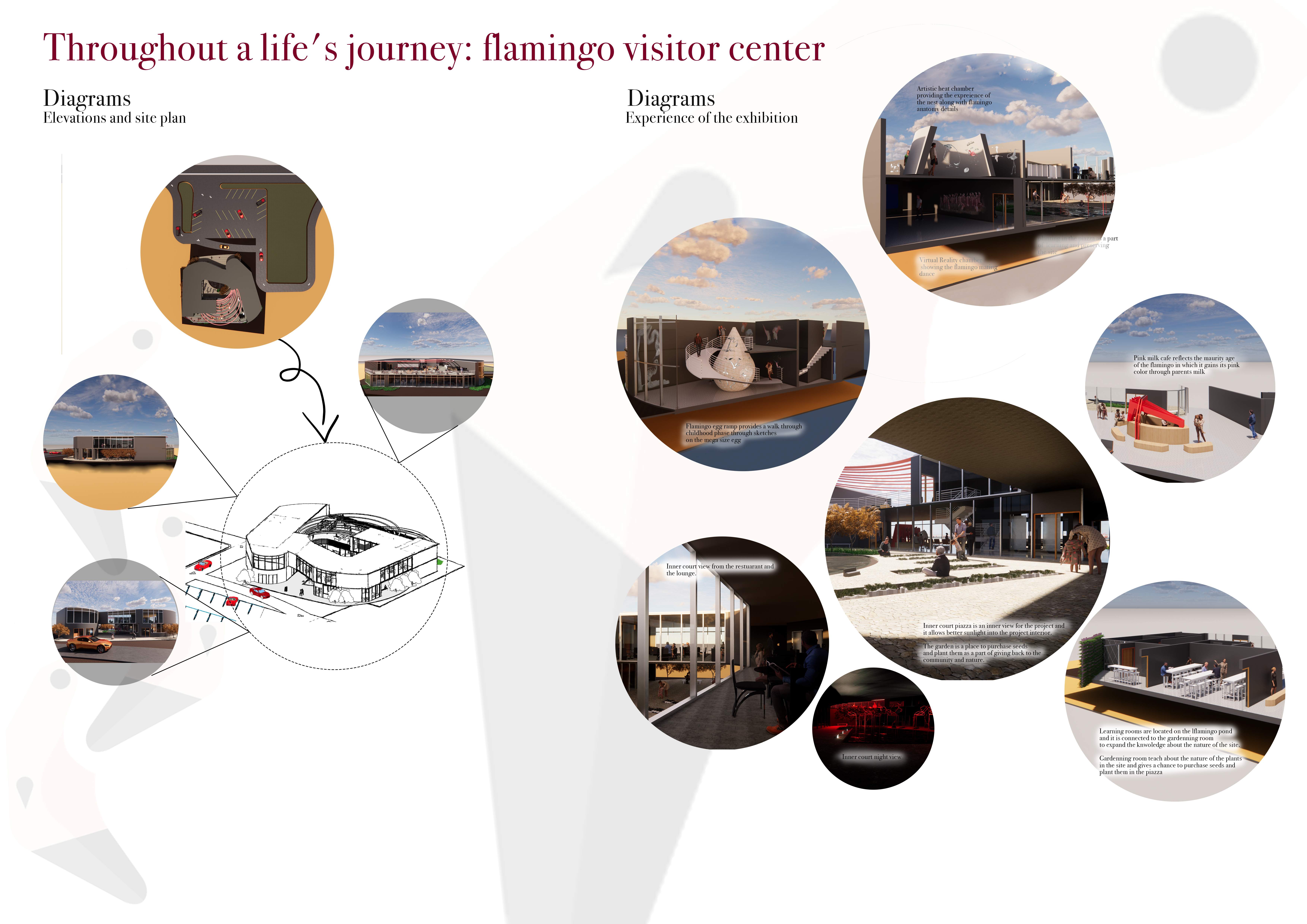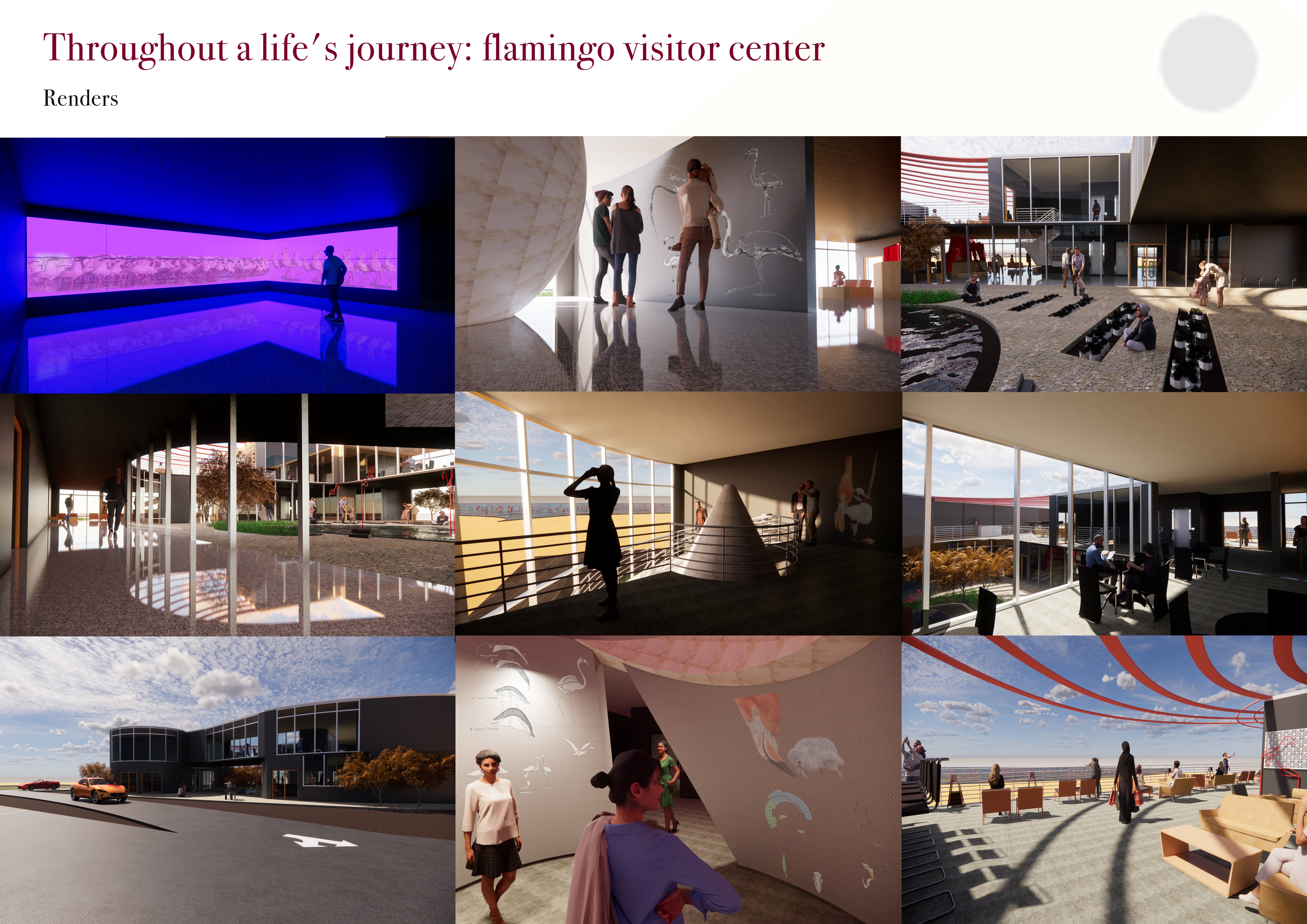5 key facts about this project
The Flamingo Visitor Center is an architectural project designed to create a multifaceted space dedicated to the education and engagement of visitors regarding flamingos and their habitats. Located in a natural setting that features a lake and wetland ecosystem, the center serves not only as a visitor attraction but also as a hub for conservation education.
The primary function of the Flamingo Visitor Center is to facilitate learning about flamingos, their behaviors, and the ecological dynamics of their environment. It integrates exhibition areas, interactive installations, and educational facilities to enhance visitor engagement and understanding of avian life cycles. The architecture of the center is designed to complement its surroundings while offering visitors unique perspectives on flamingos and their habitats.
One of the notable aspects of this project is its focus on sustainable design practices. The building makes use of materials that reflect ecological sensitivity, including recycled glass for enhanced transparency and natural stone for pathways. Wood finishes within the interior spaces create a warm atmosphere that resonates with the natural elements outside. Additionally, the building employs passive ventilation and strategically placed glazing to maximize daylighting and minimize energy consumption.
The spatial organization of the Flamingo Visitor Center enhances the visitor experience. The layout includes exhibition spaces that cater to various themes surrounding flamingo life, an outdoor observation area, and interactive learning stations. Each area is designed to guide visitors seamlessly through the educational narrative, with dedicated paths leading to different focal points of interest like virtual reality experiences that simulate the behavior of flamingos in their natural habitat.
Unique design approaches in the project include immersive experiences that leverage technology to provide a deeper understanding of flamingos and their lifecycle. The integration of interactive learning stations encourages hands-on engagement, allowing visitors to explore the intricacies of flamingo behaviors and ecological interdependencies. This emphasis on active learning sets the Flamingo Visitor Center apart from standard wildlife exhibitions.
Moreover, the connection between the center and the surrounding environment is intentional. Outdoor educational spaces, such as gardens showcasing native plants, enhance the relationship between visitors and nature. The integration of educational elements into the landscaping emphasizes the importance of local ecosystems while providing a sensory experience that complements the primary educational goals of the center.
For those interested in a deeper exploration of the Flamingo Visitor Center, it is advisable to review the architectural plans and sections that detail the design intent and functional aspects of the project. An examination of the architectural designs and ideas will provide further insights into the thoughtful integration of ecological considerations in this visitor center.


